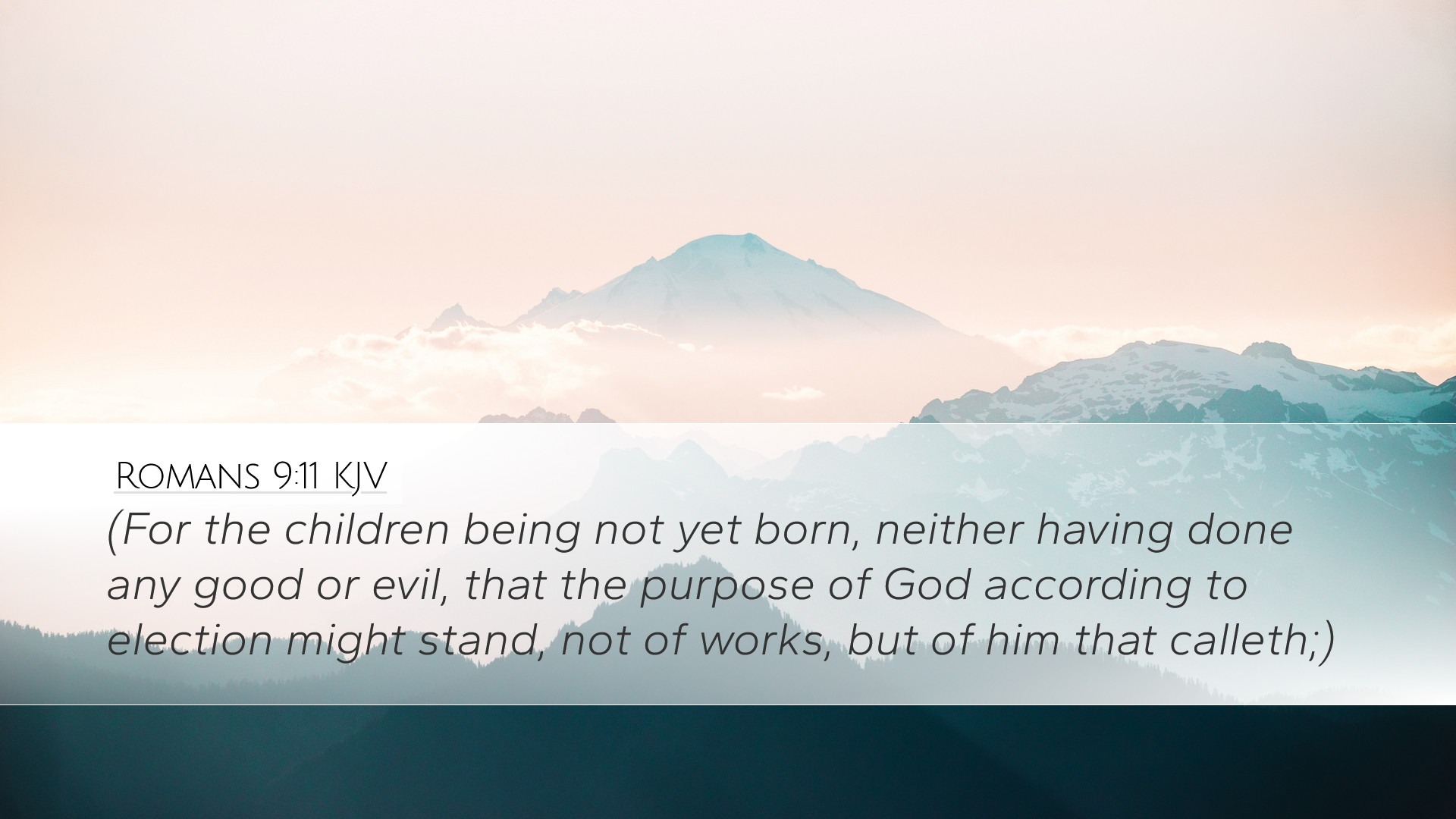Commentary on Romans 9:11
Verse Reference: Romans 9:11 - "For the children being not yet born, neither having done any good or evil, that the purpose of God according to election might stand, not of works, but of him that calleth."
Introduction
This verse serves as a foundational text in Paul’s argument regarding divine election. It emphasizes the sovereign choice of God over individual merit and previous deeds. In this commentary, insights from Matthew Henry, Albert Barnes, and Adam Clarke converge to illuminate the depth of this scripture.
Understanding Election
Romans 9:11 illustrates the doctrine of election, where God's purpose is not contingent upon human actions. This becomes evident considering that the referenced children, Jacob and Esau, had not yet been born. The inclusion of this clause underlines that God's purposes transcend human actions and decisions.
Matthew Henry's Insight
Matthew Henry emphasizes the significance of God's predestined plan, which is based on His sovereign will. He notes that the election described is not dependent on foreseen merit but is purely at the discretion of God. His commentary points out that this underscores God’s freedom in bestowing grace and mercy.
Albert Barnes' Perspective
Albert Barnes highlights that the election mentioned is indicative of God’s predestined purpose. The phrase "not of works" implies that human behaviors, whether good or evil, do not influence God’s choice. Barnes elaborates that this removal of human influence strengthens the understanding that it is God who initiates and completes salvation.
Adam Clarke’s Analysis
Adam Clarke brings attention to the implications of election in the context of God’s justice and mercy. He reflects on the balance between God’s sovereignty and human responsibility. Clarke points out that while humans are responsible for their actions, God's sovereign plan continues unabated by human choices.
Key Themes
- Divine Sovereignty: The verse showcases God’s supremacy in electing individuals apart from their actions.
- Purpose of God: The central focus on God’s purpose underscores the belief that His plans are immutable and ever-present.
- Grace over Works: This passage illustrates the critical theological principle that grace cannot be earned through deeds.
Theological Implications
Romans 9:11 raises profound theological discussions surrounding predestination and human free will. The commentary collectively affirms that while God has predetermined certain aspects of salvation, individual response and faith remain crucial for experience, albeit not for eligibility.
The Church's Role
For pastors and theologians, this text exemplifies the importance of affirming God's grace in preaching. The narrative encourages a humble approach to ministry where one recognizes that all salvation stems from God’s initiative, leading the Church to depend wholly upon His mercy.
Conclusion
In studying Romans 9:11, we grasp the depths of God’s sovereignty in salvation. As highlighted by Henry, Barnes, and Clarke, the emphasis lies on the divine prerogative rather than human worthiness. This scripture not only affirms the great truth of election but also invites believers into a profound understanding of God’s grace. Engaging with this passage offers rich resources for ministry, supporting the idea that God’s purpose prevails and His grace is sufficient.


